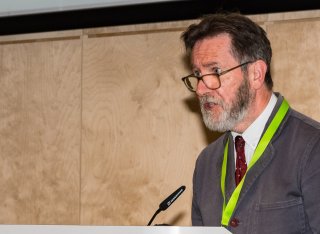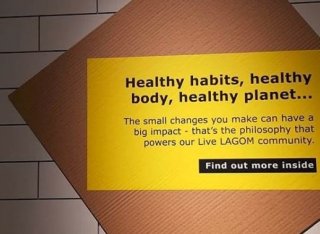
Ian Christie
Academic and research departments
Centre for Environment and Sustainability, School of Sustainability, Civil and Environmental Engineering, Institute for Sustainability.About
Biography
2016 to date: Senior Lecturer (2016-23) and Reader/Assoc. Professor (2023 - ) in social science and ethics of sustainable development, CES. Co-investigator in Centre for Understanding Sustainable Prosperity (CUSP) led by Prof Tim Jackson and Centre for Evaluation of Complexity across the Nexus (CECAN) led by Prof Nigel Gilbert. Co-investigator in ESRC ACCESS network (Exeter and Surrey) on environmental social science and policy.
2011-2015: Fellow, CES, and coordinator, Sustainable Lifestyles Research Group (programme led by Prof. Tim Jackson; funded by Defra, Scottish Government and ESRC)
1999-2011: Independent researcher, advisor, teacher and writer on sustainable development and environmental policy. Projects for central and local government, public agencies, business, NGOs and think-tanks. Part-time policy advisor to ministers and officials on sustainable housing and climate policy, 2006-2008.
Visiting Professor and regular guest lecturer at CES (2005-11). Chair of RESOLVE advisory group at CES, 2007-2010.
Work with NGOs:
Former trustee of Involve; Foundation for Democracy and Sustainable Development; Global Action Plan, New Economics Foundation. Advisory committee member for WWF-UK's global and national programmes, 2004-2010. Current trustee of Economic Change Unit and Perspectiva. WWF Fellow, 2010 to date. Associate of Green Alliance think-tank, 1999 to date. Environmental advisor to Church of England, dioceses of Guildford and Southwark, 2009 to date.
2003-2006: Joint head of sustainability and environment, economy and waste management services at Surrey County Council.
1997-1999: Deputy / acting director of Demos think-tank, London.
1995-1997: Senior consultant / Associate Director, The Henley Centre for Forecasting Ltd, London. Research programme head and lead researcher on environment and consumption.
1986-1995: Research Fellow / Senior Fellow, Policy Studies Institute, London. Projects on diffusion and impacts of new technology in industry; energy efficiency; evaluation of Government business support programmes; take-up of cleaner production systems in UK industry.
1979-1986: Computer programmer, International Computers Ltd (now Fujitsu UK); technical author and manager of documentation services, K3 Software Services Ltd (now part of IBM UK).
Areas of specialism
University roles and responsibilities
- Academic and research management
Affiliations and memberships
Business, industry and community links
News
ResearchResearch interests
- Processes of change in organisations and communities towards sustainability in values, policy, consumption and production
- Ethics of sustainability and environmental action
- Sustainable development and democratic governance
- Planetary boundaries framework
- Elinor Ostrom's commons framework for sustainable resource governance
- Religions and environmental values.
Research collaborations
Sustainable Lifestyles Research Group: collaboration with Institute of Fiscal Studies, University of Bath, University of Sussex, Brunel University, University of Edinburgh.
Research collaboration with think-tanks in recent years: ScienceWise network (Cabinet Office) on Science Horizons programme on public understanding of science and technology trends and scenarios, 2007; Theos on environmental strategy and vision for the Church of England, 2009; The Futures Company on environmental scenarios for Government departments, Environment Agency and other bodies, 2007-2010.
Research interests
- Processes of change in organisations and communities towards sustainability in values, policy, consumption and production
- Ethics of sustainability and environmental action
- Sustainable development and democratic governance
- Planetary boundaries framework
- Elinor Ostrom's commons framework for sustainable resource governance
- Religions and environmental values.
Research collaborations
Sustainable Lifestyles Research Group: collaboration with Institute of Fiscal Studies, University of Bath, University of Sussex, Brunel University, University of Edinburgh.
Research collaboration with think-tanks in recent years: ScienceWise network (Cabinet Office) on Science Horizons programme on public understanding of science and technology trends and scenarios, 2007; Theos on environmental strategy and vision for the Church of England, 2009; The Futures Company on environmental scenarios for Government departments, Environment Agency and other bodies, 2007-2010.
Supervision
Postgraduate research supervision
I co-supervise PhD and Practitioner Doctorate students covering a wide range of sustainability topics. I am particularly interested in projects looking at environmental governance, values and behaviour change, organisational strategies and political economy of sustainability.
Teaching
I teach and supervise on: Sustainable Development concepts, policies and applications; ethics of sustainability and the environment; politics, social change and political economy in relation to sustainability.
Teaching on MSc Modules: co-leader of Foundations and Applications of Sustainable Development modules ; sessions on Corporate Social and Environmental Responsibility and Environment, Science and Society modules, CES.
Lectures at UG and PG level on environmental ethics on courses in Surrey School of Tourism and Hospitality Management and Surrey Business School; sessions in University of Surrey Global Graduate Award UG programme on sustainable development.
Previous teaching included over 10 years as lead tutor for Society for Sustainable Development for Forum for the Future's Master's programme delivered with Middlesex University.
Supervision:
I supervise PhD and MSc students across all my areas of interest and expertise and currently have 10 PhD students. Examples of current PhD projects: advocacy movements for rapid climate action; promoting sustainable food choices; promoting sustainable behaviour change in a UK hospital; understanding and implementing Net Environmental Gain in local development schemes.
Sustainable development goals
My research interests are related to the following:




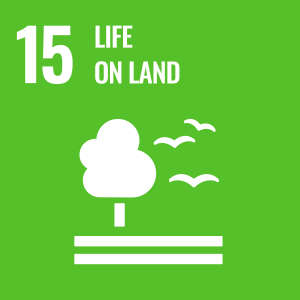
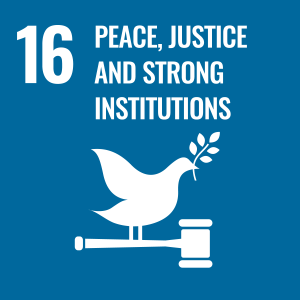
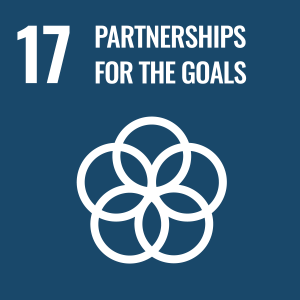
Publications
Highlights
Peer-reviewed journal papers
Christie, I., Gunton, R. and Hejnowicz, A. (2019), Sustainability and the Common Good: Catholic Social Teaching and ‘Integral Ecology’ as contributions to a framework of social values for sustainability transitions. Sustainability Science, September 2019, Volume 14, Issue 5, pp 1343–1354.
Kenter, J, Raymond C, Azzopardi, E, Brear, M, Calcagni, F, Christie, I, Christie, M, Fordham, A, Gould, R, Ives, C, Hejnowicz, A, Gunton, R, Horcea-Milcu, A-I, Kendal, D, Kronenberg, J, Massenberg, J, O’Connor, S, Ravenscroft, N, Raymond, I, Rawluk, A, van Riper, C, Rodríguez-Morales, J. (2019), Loving the mess: Navigating diversity and conflict in social values for sustainability. Sustainability Science, September 2019, Volume 14, Issue 5, pp 1439–1461
Elf, P., Gatersleben, B. and Christie, I. (2019), Facilitating positive spillover effects: New insights from a mixed-methods approach exploring factors enabling people to live more sustainable lifestyles, Frontiers in Psychology (Environmental Psychology section), 31st January 2019: https://www.frontiersin.org/articles/10.3389/fpsyg.2018.02699/full
Oakley, K., Ward J. and Christie I. (2018), Engaging the imagination: ‘new nature writing’, collective politics and the environmental crisis, Environmental Values. Vol. 27, issue 6
Books
Christie, I and Warburton, D. (2001), From Here to Sustainability: politics in the real world, Earthscan: London
Carley, M and Christie, I (2000, second edition; first edition 1993), Managing Sustainable Development, Earthscan: London.
Christie, I et al (1995), Cleaner Production in Industry, Policy Studies Institute: London.
Christie, I and Ritchie, N (eds) (1991), Energy Efficiency: the policy agenda for the 1990s, Policy Studies Institute: London.
Retailers can play an important role in facilitating a transition to sustainable diets in the UK. They have been implementing strategies aimed at helping customers make healthier choices and are now considering how to broaden this to include sustainability, which is a live discussion in the UK retail sector. Focusing on ‘less and better’ meat and dairy as a core component of sustainable diets, this study investigates retailer perceptions of sustainable diets and their strategies and challenges to provide and promote customer purchasing of ‘less and better’ meat and dairy. Results from a series of semi-structured interviews with senior health and sustainability professionals within the UK retail sector indicate that retailers have a diverse understanding of sustainable diets that seldom includes ‘less and better’ meat and dairy. Retailers are adopting a range of different strategies linked to ‘less and better’ meat and dairy – from improving the sustainability of their meat and dairy supply chains to influencing customer purchasing through ‘nudge’ interventions. While strategies related to ‘better’ meat and dairy are being adopted, no retailer is implementing interventions focused on reducing purchasing of meat products. The promotion of sustainable diets is seen by some retailers as a way of positively engaging with customers and improving brand loyalty, but there are external barriers to reducing purchasing of meat and dairy products that are beyond the direct control of the retailer.
While public bodies and civil society organisations play an important role in the transition towards a more sustainable society, there has been very limited research on how to make these institutions more sustainable. Therefore, the purpose of this study is to generate insights on processes and patterns of change towards sustainability, and to identify effective practices that might be transferred and adapted to different institutional contexts. The research followed an organisational change framework and a qualitative exploratory design. Six semi-structured interviews were conducted with experienced sustainability practitioners working at leading organisations in the UK. Thematic analysis of the data revealed three overarching themes: knowledge and reflection, support and engagement, and driving and enabling change. From this, a framework for effective practice was developed, highlighting the importance of (i) explicitly linking organisational understanding to working practices through frequent and deliberate reflection; (ii) developing a support base that provides expertise and legitimacy; and (iii) using context-specific strategies for implementing planned changes, as well as supporting emergent change throughout organisational sub-systems.
The complex interwoven crises of climate disruption and biodiversity loss demand not only rapid technological innovation for sustainable development but also major shifts in consumption and behaviour, implying a need for responses rooted in ethical values and a reorientation of attitudes towards the more-than-human world. In this context, given the global significance of faith communities and institutions as motivators and moral authorities, it is important that faith leaders state the challenges for sustainable development and suggest pathways forward to protect the environment and people that live in it. Building on his landmark encyclical of 2015, Laudato Si’, Pope Francis issued Laudate Deum, an apostolic exhortation on the climate crisis, and followed this up with a message to COP 28 for leaders to show leadership in facing up to the climate challenge. We argue that the interventions of Pope Francis point to the crucial importance of an approach to sustainable development that can integrate faith perspectives on social and ecological ethics with the knowledge generated by the natural sciences and by environmental systems science. The interdependence revealed by the emerging scientific understanding of human, animal, and ecosystem life implies the bioethics of care and stewardship, which have the potential to bring people together across religious and disciplinary divides. Unlike other analyses, we argue that it is important to understand how life was created if we are to care for it effectively and sustainably. We also put forward the case for more sustainable land use and the production of more sustainable foods. This article is written from the perspective of the Catholic Church, including its approach to moral theology, but we argue that the implications of the analysis are relevant to all faith communities and religious institutions seeking to promote sustainable development.
Despite the collective promise of integrating more open (broader-based, participatory) city-level governance into the global energy governance regime, little attention has been paid to the different impact logics and assumptions underpinning local procedural governance tools (PGTs) in circulation and the degree to which they address key good governance dimensions dominantly thought to be indicative of transformation. This review aims to fill this gap by mapping and analyzing key energy transition PGTs circulating across four climate action initiatives that mobilize and provide support to cities and local governments. A framework—REPAIR: Reflexivity, Enabling/Embedding, Participatory, Integrative, Adaptive, and Radicality—is proposed based on a synthesis of common governance innovation design features, and a representative sample of 25 PGTs are evaluated against these dimensions. The analysis reveals a need for (1) more differentiation and tailored capacity relating to governance monitoring, evaluating, and learning systems; (2) more attention to prioritization and design factors across different governance interventions in relation to local climate actions; and (3) more nuanced theories of change for operationalizing local power/coalition/mandate building (across different dimensions of governance). This article concludes that there are real gaps in how the collective advantages, opportunities, and promise of traveling “ideal types” of good governance will be fulfilled and outlines future research directions for informing more aligned governance innovation for low-carbon transitions in urban areas.
The database is the foundation for the article “Organizational Change Management for Sustainability in Higher Education Institutions: A Systematic Quantitative Literature Review” published in Sustainability (https://doi.org/10.3390/su13137299). The article summarizes and synthesizes the academic literature on organizational change management approaches that aim to holistically embed sustainability in HEIs. The database contains all papers included in and categories for analysis, as well as definitions of codes, and a list of full-text papers assessed. The theoretical framework underpinning the database and the methods for creating it can be found in the article.
This Report outlines the findings of the Travel to Work and Remote Working Student conducted 2020 at the University of Surrey
Higher education institutions (HEIs) have been urged to integrate sustainability across all their structural and organizational dimensions. A promising area of research and practice that can help to deliver this is organizational change management for sustainability. While this field has received increasing attention over the past decade, a comprehensive assessment is still lacking. Therefore, a systematic quantitative review was carried out to summarize and synthesize the academic literature on organizational change management approaches that aim to holistically embed sustainability in HEIs. Furthermore, this review aims to illustrate what change factors have been observed and how they have been analyzed, and from this highlight implications for practice and pathways for future research. The literature reviewed puts strong emphasis on change processes and human factors, as well as elements of the institutional framework, such as vision and strategy. The findings highlight the value of strategic and reflective actions, the importance of understanding and actively shaping change processes, and that change towards sustainability requires broad stakeholder input and commitment. This review serves as an important reference point for future research and practice.
The Labour government's aims for a radical modernisation of Britain, and especially for a fundamental attack on the causes and consequences of poverty, crime and chronic unemployability, depend on its ability to make a reality of the idea of ‘holistic government’. This notion – better known as ‘joined-up thinking’ and ‘joined-up policy’ – has become a soundbite and is in danger of being seen as a cliché with no substance. But it is at the heart of the government's ambitions to go down as a radical reforming administration.Holistic government is about achieving substantially better outcomes across a wide range of policy areas in which we have become accustomed to fatalism and underperformance. Successive governments have failed to tackle deep-seated problems of poverty and all the associated ills known as ‘social exclusion’ on our worst council estates; they have presided over a steady decline in the performance of public transport systems; and they have failed to raise levels of educational attainment, environmental quality and health for the worst-off parts of society.Overcoming the legacy of fatalism and low expectations about the scope for progress in these areas and actually achieving better outcomes on a large scale is not simply a matter of unlocking more public money or drawing up better legislation. It requires a cultural revolution in central and local government, and a new way of looking at policy design and implementation. This is what holistic government is about.Why do we need this revolution? The key reason is that many costs are incurred, and many problems exacerbated, because of failures of coordination and communication between departments and agencies at central and local levels. The joined-up quality of problems – those experienced, say, by elderly people with no relatives to care for them, or by disaffected young people with poor local schools and troubled families – is not reflected in joined-up policy and service delivery. Tackling complex and deep-seated problems of urban regeneration and social exclusion demands far better collaboration between public bodies, and between them and the private and community sector, than we have become used to.Holistic policy making and implementation of joined-up solutions will require a cultural revolution in four key respects.
Positive spillover occurs when changes in one behavior influence changes in subsequent behaviors. Evidence for such spillover and an understanding of when and how it may occur are still limited. This paper presents findings of a 1-year longitudinal behavior change project led by a commercial retailer in the United Kingdom and Ireland to examine behavior change and potential spillover of pro-environmental behavior, and how this may be associated with changes in environmental identity and perceptions of ease and affordability as well as perceptions of how participation in the project has helped support behavior change. We draw on both quantitative and qualitative data. Study 1 examines quantitative data from the experimental and a matched control group. Study 2 reports qualitative findings from a follow up interview study with participants of the experimental group. As expected, we found significant changes in reported pro-environmental behavior and identity in the experimental group as well as some indications of behavioral spillover. These changes were not significantly associated with changes in environmental identity. The interviews suggested that group dynamics played an important role in facilitating a sense of efficacy and promoting sustained behavior change and spillover. Moreover, the support by a trusted entity was deemed to be of crucial importance.
•Biodiversity Net Gain policy will be a mandatory requirement for urban development.•Its benefits for biodiversity can be maximized by considering functional connectivity.•The potential of electric circuit theory to fill this policy gap is explored.•The challenges that practitioners may face are addressed.•Omniscape was found to be a promising tool in the policy context.
This paper explores the potential of ‘new nature writing’ – a literary genre currently popular in the UK – as a kind of arts activism, in particular, how it might engage with the environmental crisis and lead to a kind of collective politics. We note the limitations of the genre, notably the reproduction of class, gender and ethnic hierarchies, the emphasis on nostalgia and loss, and the stress on individual responses rather than collective politics. But we also take seriously the claims of art to enable us to imagine other futures, suggesting that new nature writing has the potential to play a role in collective forms of environmental justice and capabilities.
This study explores how energy might be conceptualised as a commons, a resource owned and managed by a community with a system of rules for production and consumption. It tests one aspect of Elinor Ostrom’s design principles for successful management of common pool resources: that there should be community accountability for individual consumption behaviour. This is explored through interviews with participants in a community demand response (DR) trial in an urban neighbourhood in the UK. Domestic DR can make a contribution to balancing electricity supply and demand. This relies on smart meters, which raise vertical (individual to large organisation) privacy concerns. Community and local approaches could motivate greater levels of DR than price signals alone. We found that acting as part of a community is motivating, a conclusion which supports local and community based roll out of smart meters. Mutually supportive, voluntary, and anonymous sharing of information was welcomed. However, mutual monitoring was seen as an invasion of horizontal (peer to peer) privacy. We conclude that the research agenda, which asks whether local commons-based governance of electricity systems could provide social and environmental benefits, is worth pursuing further. This needs a shift in regulatory barriers and ‘governance-system neutral’ innovation funding.
Although there is general scientific consensus that measures are needed to avert global warming and possible consequent ecological disaster, forming and implementing policies for global warming is likely to be more difficult than has been supposed. The reasons lie in the nature of the threat and the radical mismatch between it and the types of problem normally faced by democratic governments. In particular, the greenhouse effect poses major challenges to processes for consensus building and to the readiness for sacrifice in advanced industrial societies. This essay considers aspects of the international politics of global warming, and examines some of the key economic, political and social dimensions of the response of the industrial democracies so far to the threat of global warming.
Objective To explore changes in plant-based and meat product sales during and after implementation of a multi-component in-store intervention implemented by a major UK food retailer. Secondary objectives included exploring differences by store format and area affluence. Design The intervention increased the visibility, accessibility, affordability, and availability of a selection of plant-based products. Unit sales of plant-based and meat products during the intervention (January 2021) were compared with pre- (November 2020) and post-intervention (February & March 2021). Non-meat product sales were assessed as a control. Negative binomial mixed models were used to explore sales changes differences by store format or affluence. Setting The intervention was applied in a real-world supermarket setting during Veganuary. Participants Stores that applied the full intervention (n=154) were included for analysis. Weekly sales data for each store was obtained from the retailer. Results Average weekly unit sales of plant-based products increased significantly (57%) during the intervention period (Incidence Rate Ratio 1.52 [95% CI, 1.51-1.55]). Plant-based product sales decreased post-intervention but remained 15% higher than pre-intervention (IRR 1.13 [95% CI, 1.12-1.14]). There was no significant change in meat sales according to time period. The increase in plant-based product sales was greatest at superstores (58%), especially those located in below average affluence areas (64%). Conclusions Results suggest that increasing visibility, accessibility, affordability, and availability of plant-based products led to increased sales, with evidence of lasting effects. No significant changes in meat sales were observed. Variation according to store format and area affluence indicates targeted intervention approaches are needed.
The Planetary Boundaries (PB) framework represents a significant advance in specifying the ecological constraints on human development. However, to enable decision-makers in business and public policy to respect these constraints in strategic planning, the PB framework needs to be developed to generate practical tools. With this objective in mind, we analyse the recent literature and highlight three major scientific and technical challenges in operationalizing the PB approach in decision-making: first, identification of thresholds or boundaries with associated metrics for different geographical scales; second, the need to frame approaches to allocate fair shares in the ‘safe operating space’ bounded by the PBs across the value chain and; third, the need for international bodies to co-ordinate the implementation of the measures needed to respect the Planetary Boundaries. For the first two of these challenges, we consider how they might be addressed for four PBs: climate change, freshwater use, biosphere integrity and chemical pollution and other novel entities. Four key opportunities are identified: (1) development of a common system of metrics that can be applied consistently at and across different scales; (2) setting ‘distance from boundary’ measures that can be applied at different scales; (3) development of global, preferably open-source, databases and models; and (4) advancing understanding of the interactions between the different PBs. Addressing the scientific and technical challenges in operationalizing the planetary boundaries needs be complemented with progress in addressing the equity and ethical issues in allocating the safe operating space between companies and sectors.
The sustainability challenges facing societies call for policies and governance systems that are attuned to the diversity of goods that support and enrich human life via ecological, technical and other kinds of systems, and to the plurality of values that people hold across diverse cultures and belief systems. A pluralistic evaluation framework (PEF) is here presented as a tool for considering diverse kinds of goodness as perceived by diverse stakeholders in the design and evaluation of policies or projects. It arises from considering a suite of aspects of meaning (biotic, economic, aesthetic, etc.) at each of three stages, namely: identifying relevant stakeholders, mapping real-world systems and assessing modes of valuing. This framework, drawing on the philosophical work of Herman Dooyeweerd and Dirk Vollenhoven, offers a joined-up, participatory approach to policymaking. We report pilot trials of the PEF with groups of policymakers at a series of workshops, demonstrating that it provides additional perspectives and unification of core issues and can be used in a wide range of areas of policymaking and project assessment. We also illustrate its potential application to a controversial environmental project and outline how a pluralistic evaluation framework can be used in tandem with existing frameworks.
The crisis of climate disruption and shortcomings in top-down approaches has focused attention on the effectiveness of governance to achieve climate goals. New sub-national governance models such as business alliances, city networks and NGO coalitions have emerged; such institutional ‘re-making’ is often motivated by frustration at national inaction, and by a belief thatlocal actors offer an effective ‘bottom-up’ approach. Literature on the emergence of climate-led multi-level and polycentric governance focuses primarily on cities; the role of urban-rural counties and of the micro-level of local government, and the challenges and opportunities before them, is less well studied. This paper draws on work in progress in a study exploring progress, challenges and failings in UK climate governance across multiple levels of county-based government: Surrey, an area of towns, peri-urban districts and countryside, is offered as a case study, with a focus on micro-level action in small towns and parishes. We find that despite a lack of national government orchestration or sub-regional frameworks, climate action is occurring voluntarily at all levels of governance. However, the nature of action is variable and irregular and there is little evidence as yet to demonstrate effectiveness. A fragmented form of multi-level governance is observed, with limited upward flows of ideas and no indication of national interest in micro-local climate lessons and experience. We identify the importance of ‘wilful actors’ and the need for greater coordination, information- and knowledge-sharing networks to achieve effective institutional ‘remaking’ for climate action.
To enable a transition to a more sustainable food future, it is crucial policymakers consider and address livestock production and meat consumption holistically. The concept of ‘less and better’ meat and dairy offers an alternative approach to industrial livestock production. This study explores perspectives of UK stakeholders engaged in political advocacy and implementation on policy priorities and specific policy measures aimed at facilitating a transition to ‘less and better’ meat in the UK. 16 UK experts on food and farming from the research, civil society, business and farming sectors were interviewed. Thematic analysis was conducted to identify convergence and divergence on views related to policy priorities and the potential for impact, political feasibility and unintended consequences of specific policy measures aimed at increasing the sustainability of livestock production or reducing meat consumption. Experts agreed on policy priorities but held divergent views on the potential for impact of specific policy measures. Economic structures including incentives, disincentives and food prices were highlighted as having the greatest influence over meat production and consumption practices.
The contemporary interest in urban cultivation in the global North as a component of sustainable food production warrants assessment of both its quantitative and qualitative roles. This exploratory study weighs the nutritional, ecological, and social sustainability contributions of urban agriculture by examining three cases—a community garden in the core of New York, a community farm on the edge of London, and an agricultural park on the periphery of San Francisco. Our field analysis of these sites, confirmed by generic estimates, shows very low food outputs relative to the populations of their catchment areas; the great share of urban food will continue to come from multiple foodsheds beyond urban peripheries, often far beyond. Cultivation is a more appropriate designation than agriculture for urban food growing because its sustainability benefits are more social than agronomic or ecological. A major potential benefit lies in enhancing the ecological knowledge of urbanites, including an appreciation of the role that organic food may play in promoting both sustainability and health. This study illustrates how benefits differ according to local conditions, including population density and demographics, operational scale, soil quality, and access to labor and consumers. Recognizing the real benefits, including the promotion of sustainable diets, could enable urban food growing to be developed as a component of regional foodsheds to improve the sustainability and resilience of food supply, and to further the process of public co-production of new forms of urban conviviality and wellbeing.
Orchestration requires political commitment and engagement on the basis of evidence, knowledge and progress-checking. Local actors face challenges in compiling carbon baselines that offer useful production and consumption emissions.
This paper concludes a special feature of Sustainability Science that explores a broad range of social value theoretical traditions, such as religious studies, social psychology, indigenous knowledge, economics, sociology, and philosophy. We introduce a novel transdisciplinary conceptual framework that revolves around concepts of ‘lenses’ and ‘tensions’ to help navigate value diversity. First, we consider the notion of lenses: perspectives on value and valuation along diverse dimensions that describe what values focus on, how their sociality is envisioned, and what epistemic and procedural assumptions are made. We characterise fourteen of such dimensions. This provides a foundation for exploration of seven areas of tension, between: (1) the values of individuals vs collectives; (2) values as discrete and held vs embedded and constructed; (3) value as static or changeable; (4) valuation as descriptive vs normative and transformative; (5) social vs relational values; (6) different rationalities and their relation to value integration; (7) degrees of acknowledgment of the role of power in navigating value conflicts. In doing so, we embrace the ‘mess’ of diversity, yet also provide a framework to organise this mess and support and encourage active transdisciplinary collaboration. We identify key research areas where such collaborations can be harnessed for sustainability transformation. Here it is crucial to understand how certain social value lenses are privileged over others and build capacity in decision-making for understanding and drawing on multiple value, epistemic and procedural lenses.
The commoning approach to climate action collectively claims, creates and stewards the net-zero infrastructure. Commoning invites people to participate in the transition, to have a stake, not just a say, and shape their response.
Facilitating the adoption of more sustainable food behaviors is key in order to reduce pressure on nature and improve public health. Food businesses that interact directly with consumers are well placed to enable a positive change in food behaviors. The present study evaluates the effectiveness of a 9-week multi-component behavioral intervention implemented by a large UK food retailer. Three food behaviors were explored: meat consumption, food waste and scratch cooking. Evaluation methods comprise of surveys issued pre-intervention, at intervention-end and at delayed follow-up (3 months after intervention end), and focus groups where participants were divided according to life-stage (pre-family, family, retired). Results show the intervention mitigated individual barriers to change and had a positive impact on awareness, intention and behavior which lasted beyond intervention-end. Participants reported reducing their meat consumption and food waste and cooking more frequently from scratch. Findings indicate that the online community, ‘ask the expert’ videos and product samples were the most impactful intervention components, while recipes and cook-alongs were less effective. This study provides an effective and feasible intervention which could be implemented and scaled by food companies. While behavioral interventions offer a positive opportunity for companies to drive consumer behavior change, structural and cultural changes to the food environment will be needed to facilitate long-term change at scale.
It is widely acknowledged that the large-scale and long-term transitions needed to mitigate climate change and to implement policies for sustainable development within planetary boundaries require significant shifts in values and behaviours. Consequently, there is increasing interest in the processes through which major societal transitions for sustainability can occur through peaceful cooperation and widespread embrace of pro-environmental values, and the values associated with the broad concept of sustainability such as care for the interests of future generations and concern for the poor. This encompasses the search for compelling narratives to frame the process and goals of change and the need for the fostering of virtues and ethical frameworks of identity and practice that can underpin advocacy and change for sustainability. This requires drawing on richer sources of values and ethics. We suggest that important resources can be found in religious, as well as secular traditions of social values and ethical analysis. While major religions have begun to reflect environmental concerns and sustainability goals in their theology and praxis, with immense potential and actual influence over value and behaviours, little research has explored the impacts and implications of this development; nor indeed, the intellectual stimulus and social capabilities they can offer to secular thinkers and practitioners in sustainable development. In particular, we argue that there is a need to consider the affinities between secular sustainability frameworks for ethics and policy and the concepts of Catholic Social Teaching (CST) on the Common Good, recently updated by Pope Francis to integrate ecological concern and a call for universal ‘ecological conversion’ and cooperation. We outline the key features of CST and the Pope’s new ‘ Integral Ecology ’ framework and identify affinities, in particular, with Elinor Ostrom’s system of design principles for sustainable management of commons. We conclude with suggestions for research to investigate the interrelationships of the Integral Ecology reframing of CST with initiatives for transformational change in values and practices for sustainability.
Additional publications
Melville, E., Burningham, KA, Christie, I, and Smallwood, B. (2018), Equality in local energy commons: a UK case study of community and municipal energy. Rassegna Italiana di Sociologia, vol. LVIX, no. 2, April-June
Melville, E., Christie, I., Burningham, KA, Way, C. and Hampshire, P. (2017), The electric commons: a qualitative study of community accountability. Energy Policy, 106.
Clift, R., Sim, S., King, H.,Chenoweth, J.L., Christie, I. et al (2017). The Challenges of
Applying Planetary Boundaries as a Basis for Strategic Decision-Making in Companies with Global Supply Chains. Sustainability, 9, 279.
Martin, G, Clift R and Christie, I (2016), Urban Cultivation And Its Contributions To Sustainability: Nibbles Of Food But Oodles Of Social Capital, Sustainability, 8 (5),10.3390su8050409
Jones, A, Mair, S, Ward, J, Druckman, A, Lyon, F, Christie, I, Hafner, S. (2016): Indicators for Sustainable Prosperity? - Challenges and potentials for indicator use in political processes. CUSP Working Paper No. 03 . Guildford: University of Surrey.
Jackson, T, Burningham, B, Catney, P, Christie, I, Davies, D, Doherty, B, Druckman, A, Hammond, M, Hayward, B, Jones, A, Lyon, F, Molho, N, Oakley, K, Seaford, C and Victor, P. (2016) : Understanding sustainable prosperity - toward a transdisciplinary research agenda. CUSP Working Paper No 1. Guildford: University of Surrey
Christie, I., The Pope and the Planet: waiting for Francis. Theos, 17th June 2015. https://www.theosthinktank.co.uk/comment/2015/06/17/the-pope-and-the-planet-waiting-for-francis
Venn, S., Burningham, K., Christie, I., and Jackson, T., (2015) , Consumption junkies or sustainable consumers: considering the grocery shopping practices of those transitioning to retirement. Ageing and Society: https://doi.org/10.1017/S0144686X15000975
Clift, R., Druckman, A., Christie, I., Kennedy, C., & Keirstead, J. (2015). Urban metabolism: a review in the UK context. UK Government Office for Science Foresight programme Future of Cities. https://www.gov.uk/government/collections/future-of-cities
Burningham, K., Venn, S., Christie, I., Jackson, T., Gatersleben, B. (2014). New motherhood: a moment of change in everyday shopping practices? Young Consumers. 15, 3, 211-226.
Clift, R. Druckman, A. Christie, I. Keirstead, and J. Kennedy, C. (2014). The Future of Cities: Urban Metabolism, working paper for Foresight/Cabinet Office programme on the Future of Cities. Government Office for Science: London.
Burningham, K., Venn, S., Sammes, J., Gatersleben, B., Christie, I. and Jackson, T. (2014). ELiCiT: Exploring Lifestyle Changes in Transition: a longitudinal mixed method approach, , SAGE Cases in Methodology, Sage: London
O’Riordan, T., Lenton, T. and Christie, I. (2013), Tipping points and critical thresholds: metaphors and systemic change, in O’Riordan, T. and Lenton. T. (eds), Addressing Tipping Points for a Precarious Future, Oxford University Press & The British Academy: Oxford.

